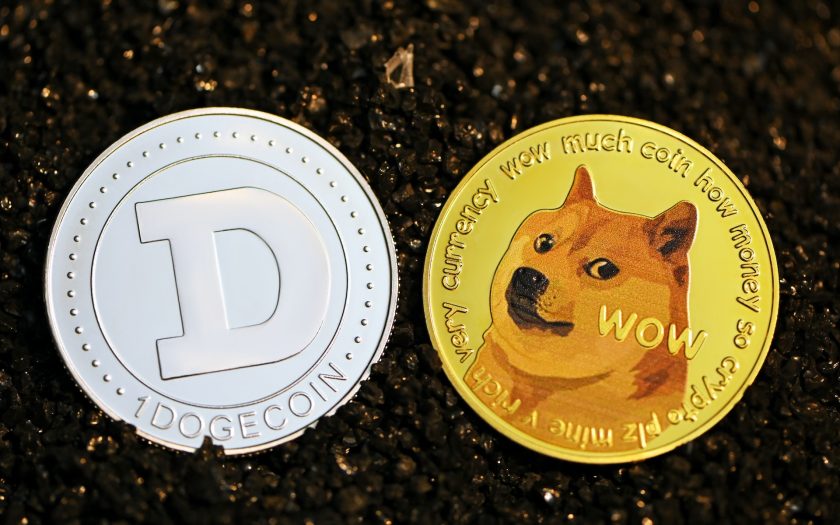
Virtual currency and other digital assets have become popular investment tools for high-net-worth individuals. As individuals acquire these assets, proactively considering the income tax, charitable and estate planning consequences of these investments can help them minimize their tax burden, comply with evolving regulations and pursue their personal wealth goals.
Digital assets: Crypto, tax and more
The digital assets ecosystem evolves so rapidly that most individuals, regardless of how knowledgeable and experienced they are, can benefit from an overview before planning.
Digital assets can be used as a form of payment, similar to paper money, in virtual communities or in exchange for actual goods and services. They can also be exchanged for fiat currency (e.g., U.S. dollars). While digital assets are their own microcosmic economy within the metaverse, online transactions have offline day-to-day implications.
One type of digital asset is cryptocurrency. Crypto is the most commonly used virtual currency issued digitally by private parties. This specific type of virtual currency uses cryptography to secure decentralized transactions that are digitally recorded on a distributed ledger, as the IRS defined in 2019.
Distributed ledger technology provides a secure electronic record of data without the involvement of political or financial institutions, thus achieving a decentralized form of currency that is not controlled by any specific individual or group. Instead, it is spread across several devices on a peer-to-peer network.
Blockchain is one type of distributed ledger. Distributed ledger technology shares transactions publicly, transparently and immutably across a peer-to-peer network. This helps to reduce fraudulent transactions, as there is no single point of weakness, and the block is validated through a network community consensus mechanism.
While cryptocurrency can function like currency in certain transactions, for tax purposes it is not currency at all. Under the latest guidance provided by the IRS as of June 1, 2022, discussed in greater detail below, it is considered property. When a U.S. taxpayer uses cryptocurrency to buy goods or services, gain or loss is recognized because, according to the IRS, cryptocurrency itself is a capital asset.
While there are thousands of different cryptocurrencies available, they all generally fall into the category of either coins or tokens.
Coins operate on their own blockchain and are created as a form of virtual currency. Coins are the most widely known form of cryptocurrency, with Bitcoin being the first cryptocurrency coin. Since its creation in 2009, thousands of other coins have been developed (e.g., Ethereum, Litecoin, Binance Coin, etc.), which are simply alternative cryptocurrencies.
While coins are similar to currency, tokens are similar to collectibles. Tokens represent a programmable tradable asset or utility that operates on an existing blockchain. There are many types of tokens; the two most common are utility tokens and security tokens.
Non-fungible tokens (NFTs) are unique tokens that exist on a blockchain and are designed to hold special value, usually in a digital asset, such as works of art, photographs or musical pieces. NFTs can also hold physical assets, such as a deed, event tickets or more. In 2021, the popularity of NFTs exploded in crypto communities, allowing digital creators to monetize their work on virtual platforms.
An NFT is not tangible property even when it holds physical property. It is a capital asset creating an entry on the blockchain. It is similar to buying an investment that can later be sold for a capital gain or loss. The NFT has value due to the fact it is unique, like how a highly-graded rare baseball card is worth more than a very common one.
Individual income tax planning for digital assets
For years, digital asset transactions did not have the same reporting standards as most other financial transactions. However, as of Jan. 1, 2022, Form 1099-K is required to be issued to a taxpayer transacting more than $600 in payments for any number of transactions of cryptocurrency. It is important to note that even if a taxpayer is not being issued reports of their transactions, it is their responsibility to keep records and properly report income.
Taxpayers are now required to answer on their individual federal income tax return whether they have engaged in any transaction involving virtual currency. This includes, but is not limited to, sales, dispositions, exchanges of currency, receipts of virtual currency for payment for goods and services, mining and staking activities, results of a hard fork or airdrop, and any other transactions that do not qualify as gifts. If there are no current transactions and the taxpayer simply holds virtual currency acquired in a prior year, the answer can be no.
When digital assets are received as the payment for services provided, the taxpayer must recognize the fair market value in U.S. dollars as ordinary income when received. These earnings should be reported to the taxpayer on a Form 1099 or Form W-2 and may be subject to self-employment tax.
Virtual currency is treated as property for federal income tax purposes. Accordingly, federal tax principles applicable to property transactions apply to virtual currency transactions.
Specifically, cryptocurrency is categorized as a capital asset for which gain or loss may be recognized upon its disposition. However, when cryptocurrency is received as payment for services or is mined, it must be reported as ordinary income.
Charitable planning with digital assets
As more taxpayers hold cryptocurrency as part of their portfolios, charitable organizations are beginning to accept gifts of cryptocurrency. Taxpayers should review a charity’s gift acceptance policy, as not all charities are willing to accept cryptocurrency donations. Donor-advised funds, for example, may have complex gift policies and experience receiving donations of digital assets.
Because cryptocurrency is property for income tax purposes, the rules governing charitable contributions of property (not cash) apply. To obtain a fair market value deduction for the gift of the digital asset, donors should consider contributing assets held for more than a year to so-called 50% charities (i.e., public charities, including supporting organizations and donor-advised funds; operating foundations and conduit foundations).
In addition, the donor will not recognize capital gain on the contribution. On the other hand, charitable contributions of assets held for one year or less or made to so-called 30% charities (i.e., private foundations) generally are limited to tax basis.
As with all charitable contribution deductions of more than $250, the donor must obtain a contemporaneous written acknowledgment from the donee. If the deduction exceeds $500, the taxpayer must file Form 8283, Noncash Charitable Contributions. If the deduction exceeds $5,000, the taxpayer must obtain a qualified appraisal. If the deduction exceeds $500,000, the taxpayer must attach the appraisal to the tax return.
There is no exception to the appraisal requirement even where the cryptocurrency is actively traded with a readily available fair market value. The taxpayer must receive the contemporaneous written acknowledgment by the earlier of the due date of the original tax return, including extensions, or the date on which the return is filed. The appraisal must be completed no earlier than 60 days before the donation and no later than the due date of the tax return, including amended returns, on which the deduction is first claimed.
Estate planning with digital assets
Cryptocurrency and other digital assets can present distinct estate planning complications that require a specific strategy for digital asset holdings as part of an individual’s estate plan.
Foremost, individuals should ensure that a trusted person, such as the planned executor for their estate, knows about these assets and is able to locate and access them. That includes identifying a safe way to share passwords to access the digital assets, such as a list attached to the will that lists personal items, as well as indicating how to access the digital wallet and digital assets.
For those fearful of losing access, consider custody solutions. An industry is developing around the custody of digital assets to provide custody solutions, similar to holding assets in a bank. These solutions allow a way to title the account with a transfer-on-death title (similar to financial accounts) to ensure assets end up where the individual intends for them to go while avoiding the probate process.
A common estate planning technique to avoid the probate process is to place assets in a revocable trust. It can be challenging to retitle digital assets in the name of a revocable trust or list a transfer-on-death name. Titling digital assets in the name of a trust can require more paperwork and effort than purchasing the digital assets in the name of an individual. From the start, individuals should consider setting up their digital marketplace (e.g., Coinbase) account in the name of a revocable trust if probate avoidance is of concern.
For individuals with taxable estates, lifetime gifting of digital assets that are expected to appreciate could be an opportunity to remove future appreciation out of the estate during the life of the individual. Individuals should consider the volatility of their holdings before considering this approach.
As with all high-risk assets, there is some inherent risk in gifting of digital assets because if the assets were to decline in value, it would result in an unnecessary use of a taxpayer’s gift tax exemption. There are certain techniques, such as a power of substitution, that can be drafted into documents to create flexibility and mitigate the risk of volatility.
Since cryptocurrency and other digital assets are classified as property, they receive a step-up in basis at death. It is important to weigh the benefits to removing future appreciation from the estate versus keeping low-basis assets in the estate to receive a step-up in basis at death. Assets gifted during life retain a carryover basis from the donor to the donee, and it could be beneficial to hold onto assets that will receive a step-up in basis upon death so that the ultimate beneficiary does not bear the burden of recognizing the capital gain due to a low carryover basis.
Take action
The digital assets space is constantly changing, especially as governments look to regulate this area. It is recommended that individuals who invest in cryptocurrency and other digital assets evaluate their existing income tax, charitable and estate planning strategies with these assets in mind.
RSM’s private client professionals can customize your estate plan and transfer wealth while minimizing your tax exposure. Successful wealth transfer plans being with sound tax and personal planning, which provides reassurance that your assets will be transferred according to your wishes. Federal taxes covering estate, gift and income are ever changing, so a strategic approach is important.
RSM’s purpose is to deliver the power of being understood to our clients, colleagues and communities through world-class audit, tax and consulting services focused on middle market businesses. RSM US LLP is the U.S. member of RSM International, a global network of independent audit, tax and consulting firms with 51,000 people across 123 countries.
© 2022 American City Business Journals. All rights reserved. Use of and/or registration on any portion of this site constitutes acceptance of our User Agreement (updated January 1, 2021) and Privacy Policy and Cookie Statement (updated July 1, 2022). The material on this site may not be reproduced, distributed, transmitted, cached or otherwise used, except with the prior written permission of American City Business Journals.
 How To Make Huge Profits In A Short Time With Crypto
How To Make Huge Profits In A Short Time With CryptoGet detailed training system that shows an absolute beginner (without any skill) how to make huge profits in a short time with crypto.
 Crypto + NFT Quick Start Course
Crypto + NFT Quick Start CourseThe #1 course for profit in the Crypto & NFT world - You will discover the secrets that 99% of people don’t know yet





